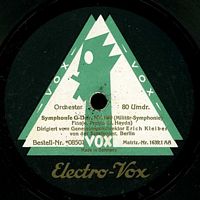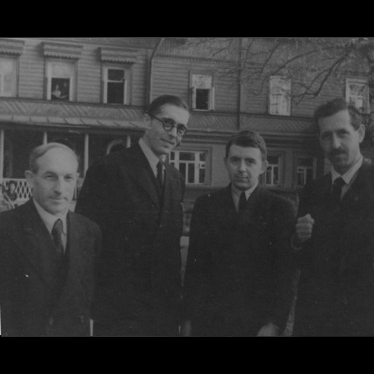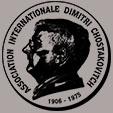Étiquette : NYPO
Meilleurs Vœux pour 2022 avec/ Best Wishes for 2022 with:
Rossini
Il Signor Bruschino – NYPO Carnegie Hall 29 mars 1953
Cenerentola – NBC SO Carnegie Hall 14 février 1954
Semiramide – BSO Boston Symphony Hall 31 janvier 1953
_____
Verdi La Forza del Destino NBC SO Carnegie Hall 2 février 1952
Wagner Faust-Ouvertüre NYPO Carnegie Hall 22 mars 1953
Source: Bande/Tape 19 cm/s / 7.5 ips
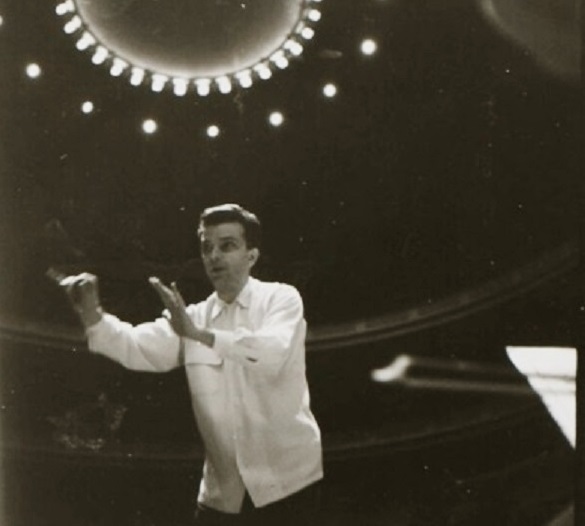
Voici pour débuter cette année cinq ouvertures interprétées avec trois orchestres (New York Philharmonic; NBC Symphony Orchestra; Boston Symphony Orchestra) pour lesquelles les interprétations de Cantelli se situent dans le droit fil de Toscanini. On notera cependant qu’il y a ici plus de respiration et de souplesse, et que l’enthousiasme y est celui de la jeunesse. Mais Toscanini lui-même ne disait-il pas de Cantelli que c’était lui quand il était jeune?
L’ouverture qu’il a le plus jouée était Semiramide, depuis le Festival d’Edimbourg 1950 (le 6 septembre) avec l’orchestre de la Scala: il en reste un bref extrait de 3’45 filmé en répétition à Usher Hall (pour un extrait d’une minute, cliquer ICI ), jusqu’à son tout dernier concert le 17 novembre 1956 à Novara avec ce même orchestre.
_____________
For the beginning of this New Year, here are five Overtures performed with three orchestras (New York Philharmonic; NBC Symphony Orchestra; Boston Symphony Orchestra) in which Cantelli’s performances are in line with Toscanini’s. There are, it is worth noting, more breathing and flexibility, and the enthusiasm is that of youth. But didn’t Toscanini himself say that Cantelli was like himself when he was young?
The Overture he performed most was Semiramide, since the 1950 Edinburgh Festival (September, 6) with the Scala Orchestra, of which remains a short filmed 3’45 rehearsal excerpt shot in Usher Hall (click HERE for one minute thereof), until his very last concert on November, 17, 1956 in Novara, with the same orchestra.
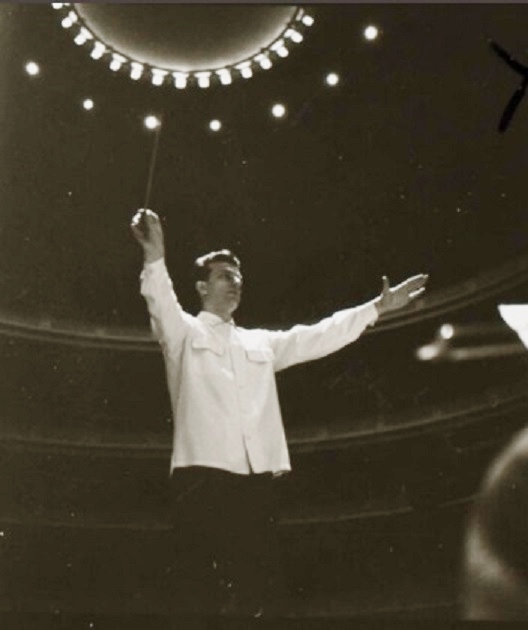
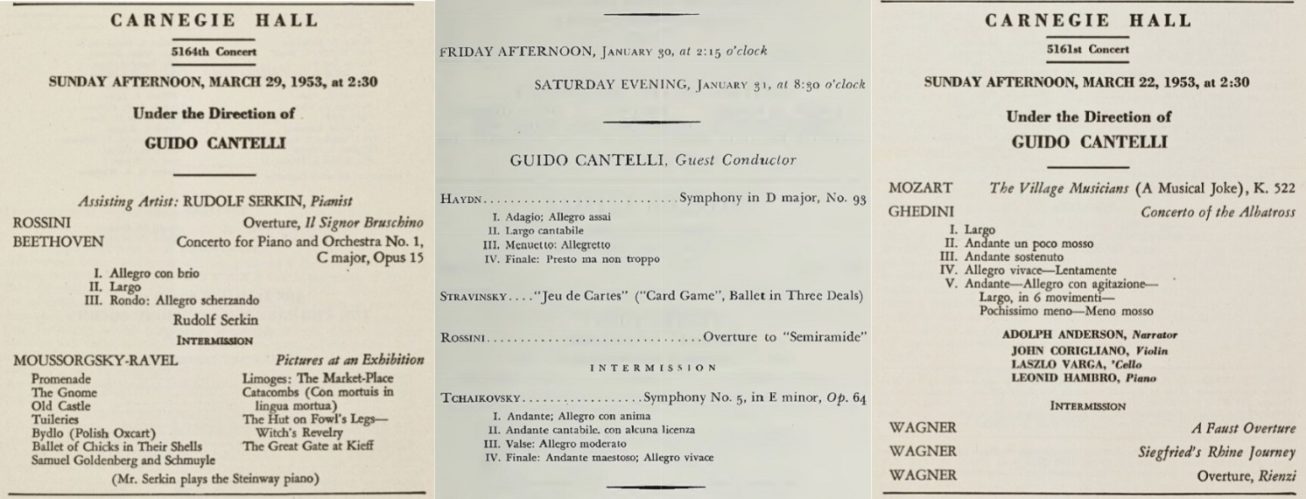
Guido Cantelli: NYPO March 29, 1953 – BSO Jan. 30 & 31, 1953 – NYPO March 22, 1953
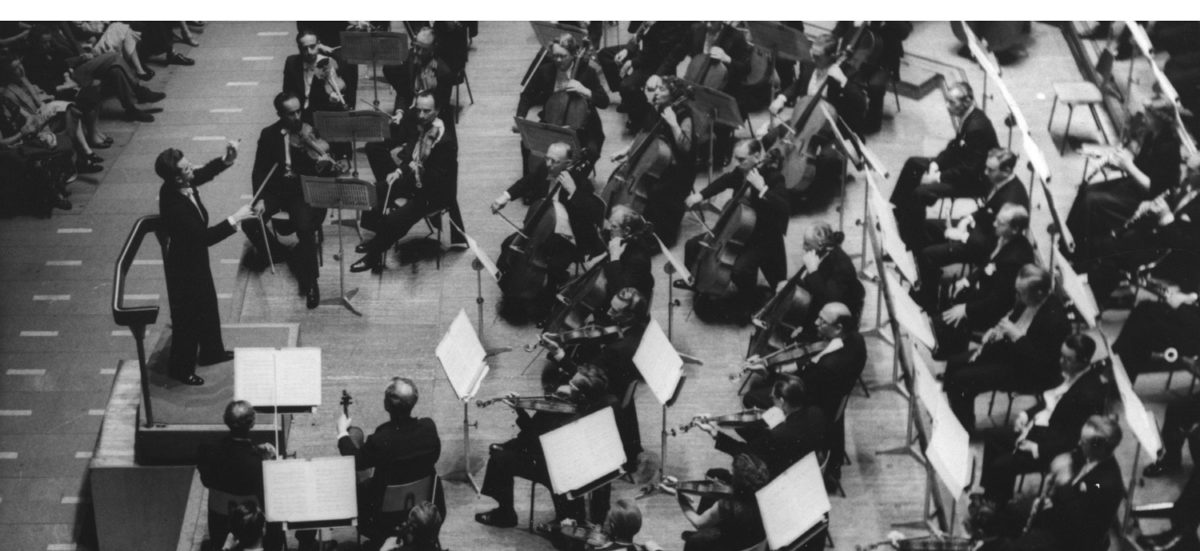
Guido Cantelli
Source: Bande/Tape 19 cm/s / 7.5 ips
I – Philharmonia Orchestra – London Kingsway Hall May 15 & 21, 1953
Manoug Parikian, violin
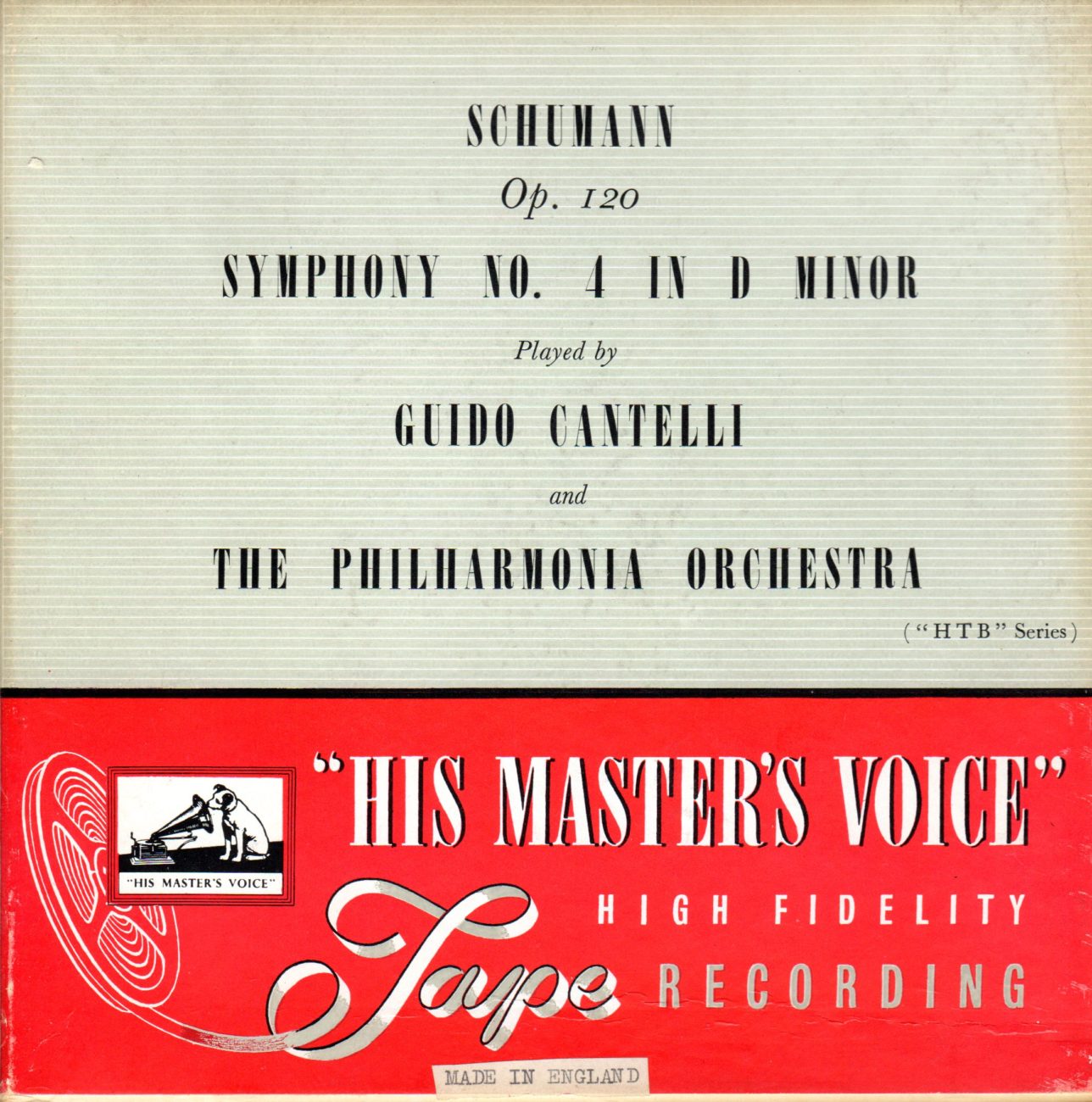

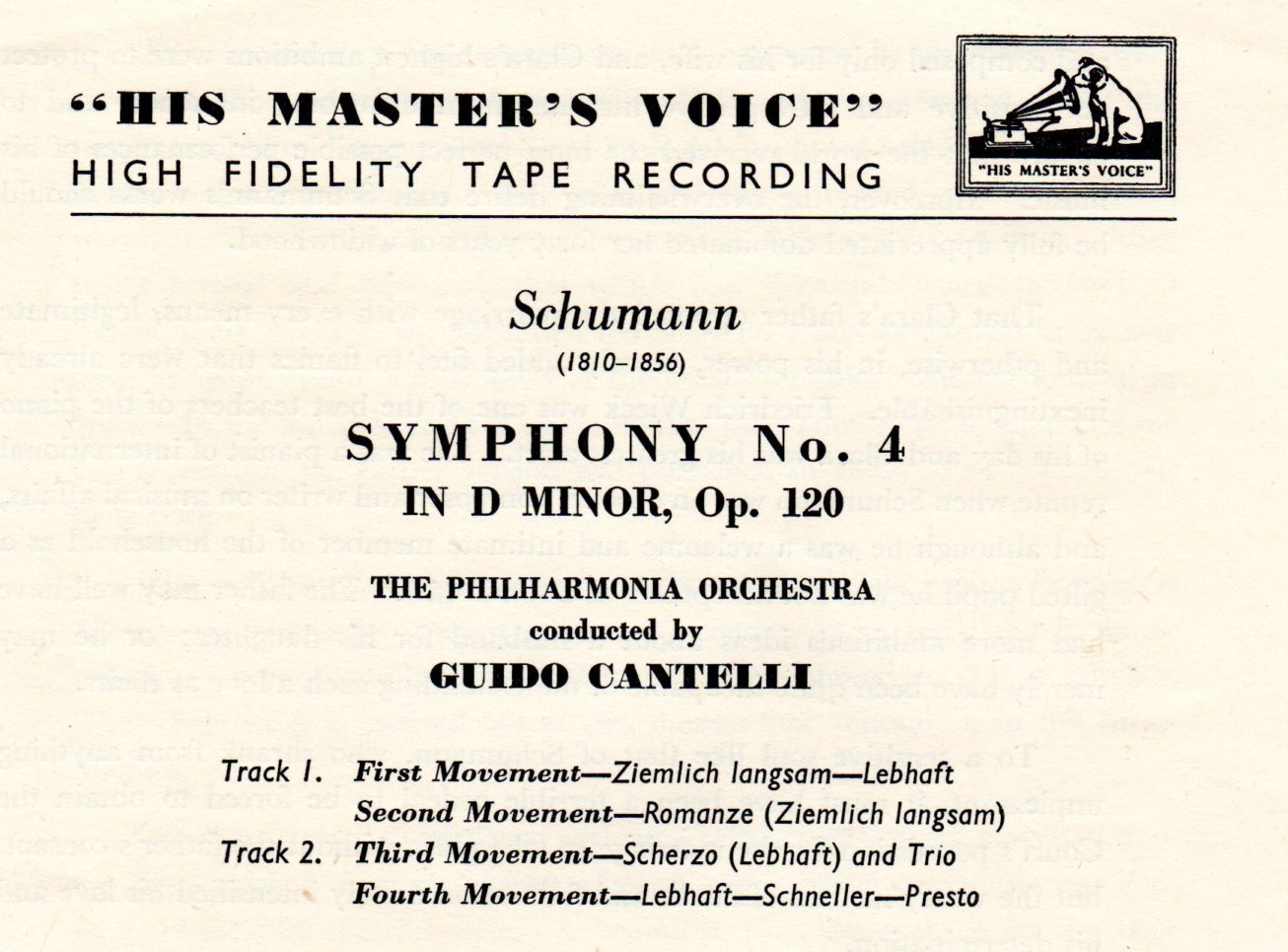
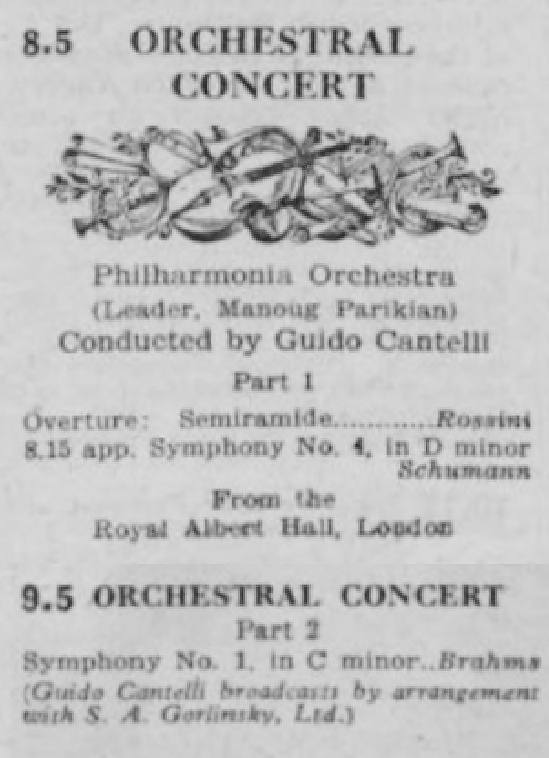
Concert du 11 mai 1953 (BBC Third Program)
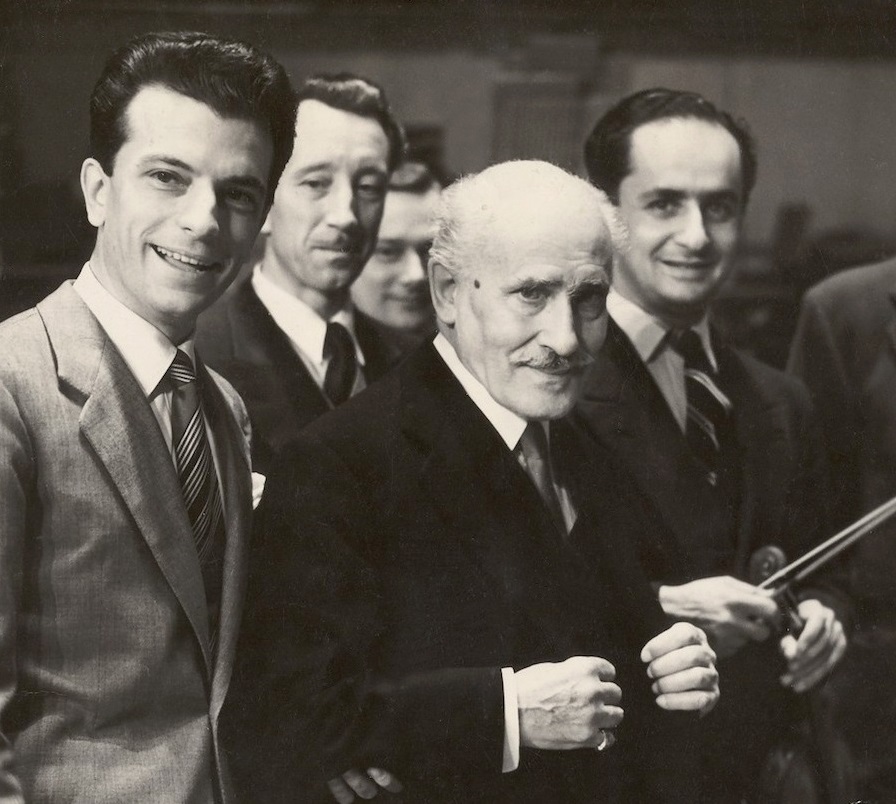
Guido Cantelli Herbert Downes Arturo Toscanini Manoug Parikian
La Quatrième de Schumann: une des grandes interprétations de Guido Cantelli. Son enregistrement avec le Philharmonia, réalisé peu après un concert au Royal Albert Hall (et quasiment en même temps que celui de Furtwängler), est ici reproduit à partir d’un exemplaire en bon état de la bande commercialisée sous la référence HTB 401. Quant à la version en public avec le NYPO, elle matérialise la seule série de concerts où il l’a programmée avec cet orchestre, et aussi son ultime vision de cette œuvre, assez différente de celle avec le Philharmonia, mais tout aussi passionnante.
____________
Schumann Symphonie n°4 – Cantelli Concerts (* = concert radiodiffusé/broadcast concert):
Orchestra del Teatro alla Scala: 12/11/ 1954 (Brescia); NBC SO: 29/11/1952*; NYPO: 15, 16, 18*, 24/3/1956; BSO: 6, 7*/2/1953; WPO: 9/8/1953* (Salzburg); Philharmonia: 11/5/1953* (CD ICAC 5143); 9/9/1954* Edinburgh (CD ICAC 5081)
____________
The Schumann Fourth: one of the great interpretations by Guido Cantelli. His recording with the Philharmonia, made soon after a concert at Royal Albert Hall (and almost at the same time as Furtwängler’s), is reproduced here from a copy in good condition of the HTB 401 commercial tape. As to the live version with the NYPO, it materializes the only concert week when he performed it with this orchestra, and also his last vision of this work, rather different from the one with the Philharmonia, but as thrilling.
II – NYPO New York Carnegie Hall – March 18, 1956
John Corigliano, violin
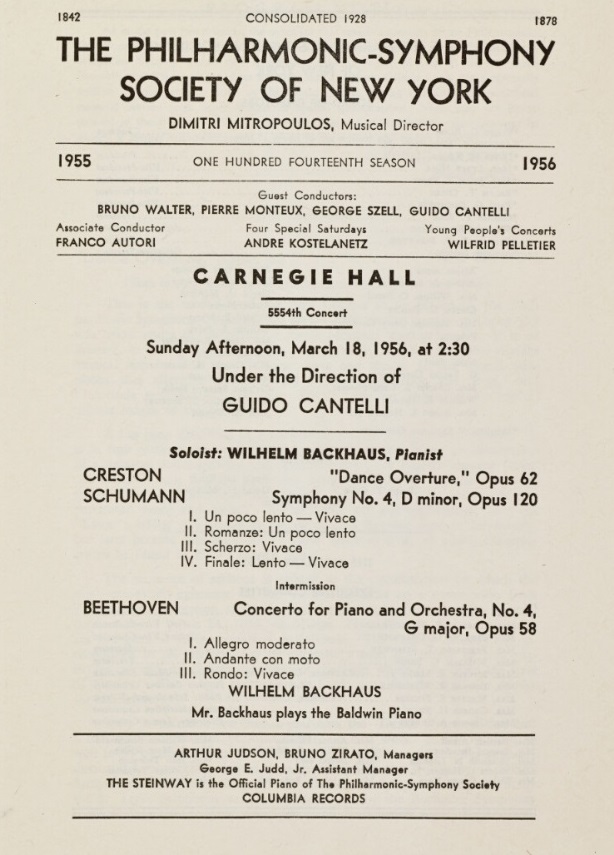
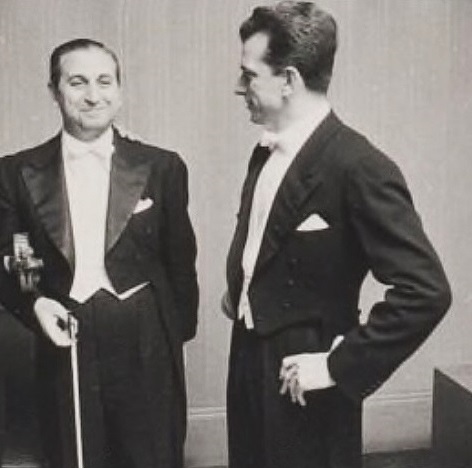
John Corigliano Guido Cantelli
Les liens de téléchargement sont dans le premier commentaire. The download links are in the first comment.

New York Philharmonic – Bruno Walter – Irmgard Seefried, soprano
Carnegie Hall – 4 janvier 1953
Source: Bande/Tape 38 cm/s / 15 ips
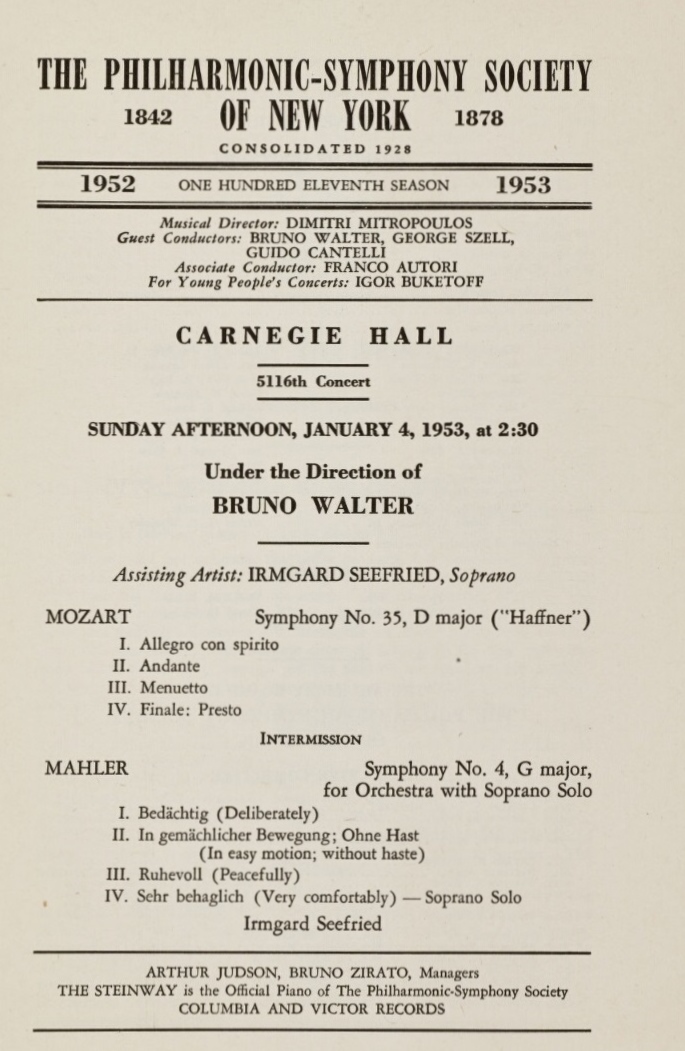

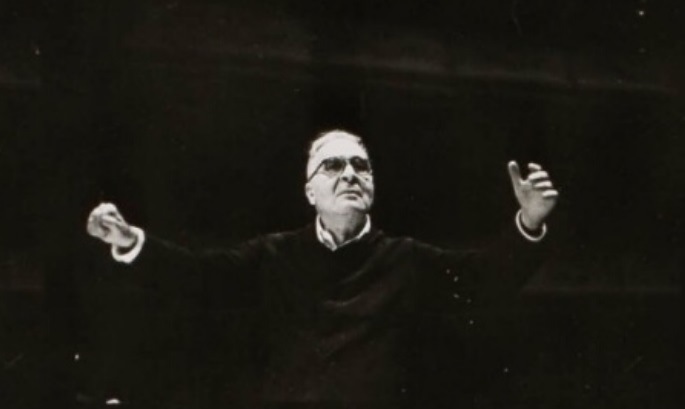
Irmgard Seefried a chanté pour la première fois avec Bruno Walter au Festival de Salzburg 1950, les 23 et 24 août, avec au programme cette même Quatrième Symphonie qu’elle a aussi donnée sous sa direction au Festival d’Edinburgh le 22 août 1951 lors de son tout premier concert avec le NYPO. Sa première apparition à New York a été un récital à Town Hall le 9 décembre 1951 avec Paul Ulanowsky, lors de sa première tournée américaine.
Le concert radiodiffusé du dimanche 4 janvier ne comportait pas les mêmes œuvres que les deux précédents, donnés les 1er et 2 janvier* qui proposaient quatre Lieder avec orchestre de Mahler (Ich bin der Welt abhanden gekommen, Wo die schönen Trompeten blasen, Ich atmet’ einen linden Duft, Wer hat dies Liedlein erdacht), des premières pour le NYPO, dont on n’a hélas pas l’enregistrement, ce qui est d’autant plus regrettable que ce sont les seuls concerts où Seefried et Walter les ont programmées:
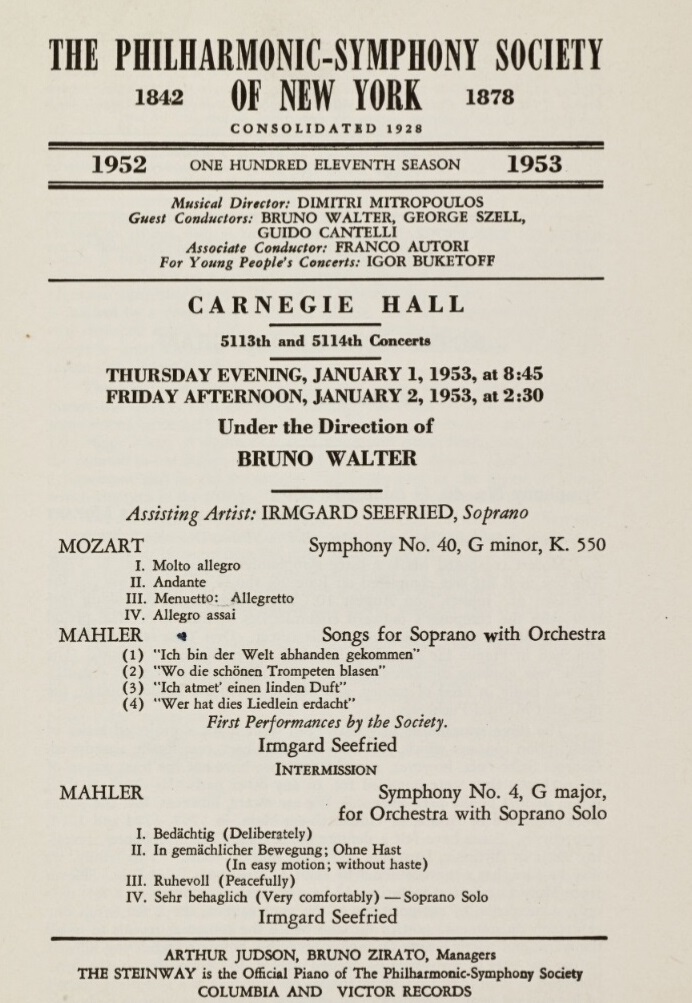
* le concert du 3 janvier 1953 a été dirigé par Franco Autori avec un tout autre programme (Debussy Cathédrale Engloutie, Beethoven Concerto n°5 Eugene Istomin, Sibelius Symphonie n°2).
§§§§§
Seefried a déclaré en 1982 dans une interview: « J‘ai appris de Bruno Walter le style de Mahler. Il m’a dit que Mahler était quelqu’un de très sérieux et de très strict, qu’il fallait le chanter de manière claire et classique, et que pour le Final de la Quatrième, je devais avoir le sentiment d‘être un petit ange chérubin avec une petite trompette, alors que la plupart des sopranos le font comme une petite berceuse ».
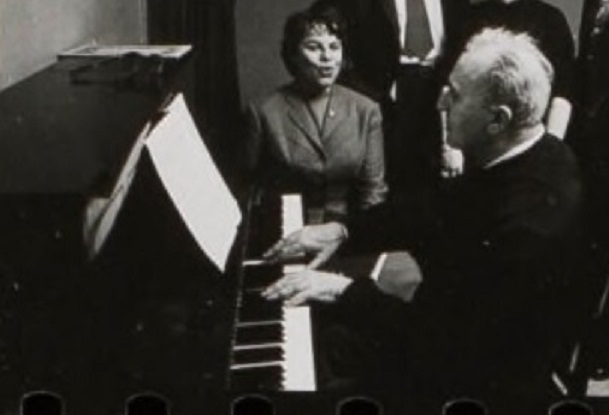
Il reste à expliquer pourquoi, lors du concert du dimanche, la Symphonie n° 35 « Haffner » de Mozart (17′) a été jouée au lieu des quatre mélodies de Mahler (durée totale 15′) qui auraient été le choix logique. L’explication est qu’une séance d’enregistrement était programmée le lundi 5 janvier, dans les Studios Columbia avec la Symphonie « Haffner » et …… « Siegfried Idyll » de Wagner. Il n’est guère étonnant qu’au vu de la charge de travail de l’orchestre en ce début d’année, la séance du 5 janvier ait été peu productive et que l’essentiel de ce qui a été publié provienne de la séance supplémentaire programmée à la hâte le 16 janvier (Mozart Symphonie n°35: 16 janvier; Wagner Siegfried Idyll: 5 & 16 janvier), organisée alors même que l’orchestre donnait ce jour-là en début d’après-midi un concert sous la direction de George Szell.
____________
Irmgard Seefried sang for the first time with Bruno Walter at the 1950 Salzburg Festival, on August 23 and 24, and it was this Fourth Symphony which she also sang under his direction at the Edinburgh Festival on August 22, 1951 for her very first concert with the NYPO. During her first US tour, she was heard at a Town Hall recital with Paul Ulanowsky on December 9, 1951, and this was the first time she sang in New York.
The Sunday January 4 broadcast was not comprised of the same works as the two other ones on January 1 and 2* which proposed four Mahler orchestral Lieder (Ich bin der Welt abhanden gekommen, Wo die schönen Trompeten blasen, Ich atmet’ einen linden Duft, Wer hat dies Liedlein erdacht), first performances with the NYPO, and there is unfortunately no recording thereof, which is all the more regrettable since these were the only concerts at which Seefried and Walter performed them.
* the January 3, 1953 concert was conducted by Franco Autori with an entirely different program (Debussy Cathédrale Engloutie, Beethoven Concerto n°5 Eugene Istomin, Sibelius Symphonie n°2).
§§§§§
In a 1982 interview, Seefried declared: « I learned the style of Mahler from Bruno Walter. He told me that Mahler was somebody very serious, very strict, that he had to be sung in a clear and classical way, and that for the Final movement of the Fourth, I was to have the feeling of being a tiny Cherubino angel with a tiny trumpet, whereas most sopranos do it as a little lullaby« .
There remains to explain why, at the Sunday broadcast concert, Mozart’s Symphony n° 35 « Haffner » (17′) has been played instead of the four Mahler Lieder (total timing:15′) which would have been the logical choice,. The reason was that a recording session had been scheduled on Monday January 5) at the Columbia Studios with the « Haffner » Symphony and…… Wagner’s « Siegfried Idyll ». Small wonder that, in view of the orchesta’s workload on this first week of 1953, the January 5 session had not been very successful, and that the major part of what has been published came from the hastily organized additional session on January 16 (Mozart Symphony n°35: January 16; Wagner Siegfried Idyll: January 5 & 16) scheduled although the orchestra was giving that very day an afternoon concert with George Szell.
Les liens de téléchargement sont dans le premier commentaire. The download links are in the first comment.
SONY Classical vient d’annoncer la parution prévue en avril 2022 d’un imposant coffret de 69 CD intitulé « Dimitri Mitropoulos – The Complete RCA and Columbia Album Collection ».
C’est un véritable événement , car l’accessibilité de nombre de ces documents historiques était devenu problématique.
Les détails de la composition du coffret sont donnés ici
______________
SONY Classical has just announced the publication in April 2022 of an important Boxset titled: « Dimitri Mitropoulos – The Complete RCA and Columbia Album Collection ».
This is a great event since many of these historical documents had become hard to find.
The details of its content are given here

Dimitri Mitropoulos Kölner Rundfunk Sinfonie Orchester
Lucretia West, mezzo-soprano
Kölner Rundfunkchor dir: Bernhard Zimmermann
Kölner Domchor dir: Adolf Wendel
Köln Funkhaus Saal 1 – 31 Oktober 1960
Source: Bande/Tape 38 cm/s / 15 ips
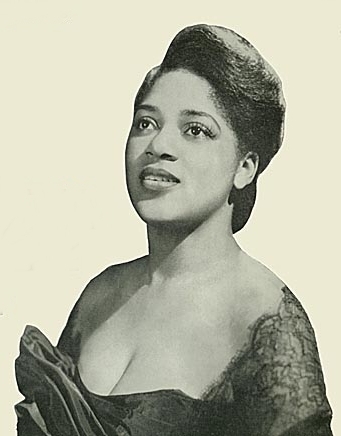
Lucretia West
Ce fut donc le dernier concert de Dimitri Mitropoulos, qui en dépit de son état de santé, s’était imposé pendant l’été et l’automne 1960 une programmation très chargée, qui est reconstituée ici pour la première fois.
Au Festival de Salzburg 1960, il donne deux concerts triomphaux (Mendelssohn Symphonie n°3, Schoenberg Variations Op.31 et Debussy La Mer le 21 août, et la Symphonie n°8 de Mahler le 28 août). Ensuite, Il dirige au Wiener Staatsoper six représentations (23, 27 et 30 septembre; 7, 12 et 15 octobre) de la Forza del Destino de Verdi qualifiées de géniales par la presse autrichienne, entrecoupées avec les Wiener Philharmoniker de deux programmes à la Musikvereinsaal, d’une part les 1 et 2 octobre (Mahler Symphonie n°9), et d’autre part les 8 et 9 octobre (Schumann Symphonie n°2, Th. Berger Jahreszeiten et Debussy La Mer). Ces deux programmes sont redonnés au cours d’une courte tournée, le 10 à Graz pour le premier, et le 11 à Linz pour le deuxième.
Il se rend ensuite à Cologne pour une série de quatre concerts avec l’Orchestre Symphonique de la WDR (Kölner Rundfunk Sinfonie Orchester).
Le premier de ceux-ci, le 24 octobre, reprend le programme salzbourgeois du 21 août avec le BPO, et le second, le 31 octobre, est donc consacré à cette Troisième de Mahler. Lors du concert du 31, il réussit à surmonter un malaise au cours du premier mouvement, mais il refuse cependant les avis pressants d’interrompre le concert après l’entracte qui suit le premier mouvement, acceptant seulement de diriger assis. En dépit de son état de fatigue extrême, il prend immédiatement après la fin du concert le train de nuit pour Milan où il doit diriger cette même Troisième le 7 novembre avec l’Orchestre de la Scala.
Le soir du 1er novembre, il rédige dans sa chambre d’hôtel milanaise une courte lettre à l’intention de l’épouse de Bruno Zirato*, Nina, qu’il poste le lendemain matin en se rendant à sa répétition avec l’Orchestre de la Scala: « Je suis ici à Milan, malheureux et mort de fatigue, et je m’inquiète de mon état de santé. Le climat de Cologne ne m’a pas fait de bien…. J’étais toujours à court de respiration. Chers amis, priez pour que je puisse retourner à New-York, et qu’ici je ne sois pas obligé d’aller à l’hôpital. Votre malheureux Dimitri ».
Le décès de Mitropoulos au cours de la répétition du 2 novembre a été rapporté dans l’ouvrage de Willam R. Trotter « Priest of Music The Life of Dimitri Mitropoulos« .
Karl O. Hoch (WDR – Leiter der Hauptabteilung Musik) annonce dans son hommage radiophonique que le chef venait d’accepter sa nomination comme Directeur Musical du Kölner Rundfunk Sinfonie Orchester. On ne connaît pas les programmes des deux autres concerts prévus à Cologne les 14 et 21 novembre.
Mitropoulos avait également des engagements à New-York avec le New-York Philharmonic et le Metropolitan Opera**. Il s’agissait tout d’abord d’un prestigieux concert supplémentaire qui avait été décidé probablement début octobre et pour lequel un accord avait été finalisé le 18 octobre: le « Pension Fund Concert » du 18 décembre avec une rencontre qui promettait d’être exceptionnelle avec le pianiste Sviatoslav Richter (Beethoven Concerto n°1 et Brahms Concerto n°2). Deux répétitions avaient été prévues le 14 et le 17 en tenant compte des engagements que Mitropoulos avait avec le Metropolitan Opera.
Le 28 octobre, le concert a été mis en location par correspondance. L’administration a été submergée par les demandes de billets, et plus de 2000 chèques ont dû être retournés aux souscripteurs. Le concert a finalement été dirigé par Bernstein et Richter a joué Liszt (Concerto n°2) et Tchaïkovski (Concerto n°1).
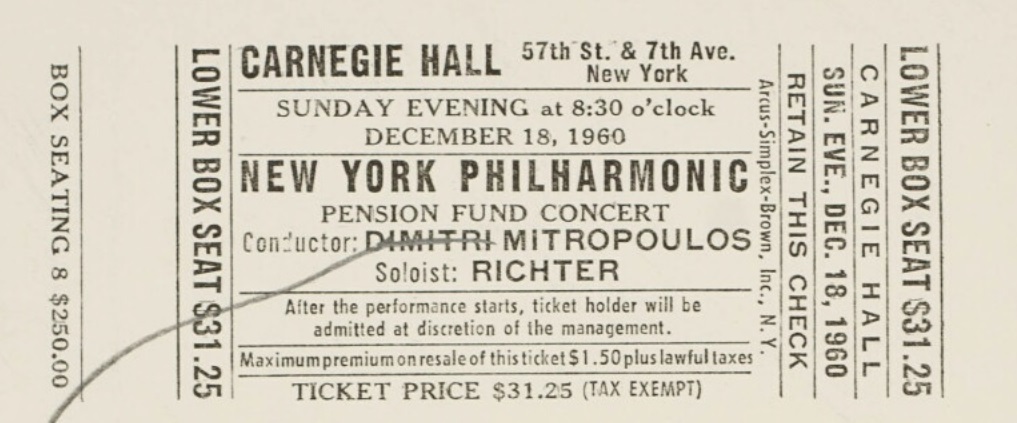
Pour la saison 1960-1961, Dimitri Mitropoulos avait des engagements pour quatre semaines de concerts successives avec le NYPO:
I – 29 et 30 décembre 1960 1er janvier 1961: Mahler Symphonie n°3 avec Martha Lipton. Le chef de chœur Hugh Ross propose de faire répéter ensemble un chœur féminin (27) du Berkshire Music Center (plutôt que la Schola Cantorum de New-York) et un chœur d’enfants (25) de la High School of Music and Art.
II – 5, 6 ,7 et 8 janvier 1961: Bach-Schoenberg Prélude et Fugue en mi mineur; Katchaturian Concerto pour violoncelle avec Rohan de Saram; Scriabine Prométhée (Poème du Feu) Op.60.
III – 12, 13, 14 et 15 janvier 1961: Mendelssohn Symphonie n°3; Krenek Medea avec Blanche Thebom; Gould Dialogues pour piano et orchestre à cordes avec Morton Gould; Skalkottas Danses Grecques.
IV – 19, 20, 21 et 22 janvier 1961: Beethoven Symphonie n°2; Berg 3 Pièces pour orchestre Op.6; Prokofiev Concerto pour piano n°3 Zadel Skolovsky; Berlioz Rob Roy, Ouverture.
Ces concerts, reprogrammés dans l’urgence, ont été assurés avec des programmes presque entièrement différents, par Stanislav Skrowaczewski pour les deux premiers et Paul Paray pour les deux suivants.
La Troisième de Mahler a été donnée plus tard, les 30 et 31 mars, et les 1 et 2 avril 1961 sous la direction de Leonard Bernstein, à la mémoire de Dimitri Mitropoulos.
Trois ans après son départ de la direction du NYPO, l’attitude de l »administration de l’orchestre à son égard avait changé. Les succès rencontrés au Met ainsi qu’en Europe (Festival de Salzburg, Wiener Staatsoper, WDR Köln) y ont vraisemblablement été pour beaucoup. Un autre indice de ce relatif rapprochement se trouve dans le fait que, pour ses concerts de l’été et de l’automne 1960, Mitropoulos avait emprunté au NYPO la partition orchestrale et le matériel d’orchestre de « La Mer » de Debussy. Après son décès, eut lieu un échange de courrier inquiet entre Joan Bonime (NYPO) et Karl O. Hoch (WDR) pour récupérer ces précieux documents, ce qui eut lieu effectivement dans les semaines qui suivirent. A noter que Mitropoulos, qui dirigeait par cœur, avait laissé la partition dans son appartement de New-York, et n’avait emmené en Europe que le matériel d’orchestre!
Les enregistrements radiophoniques qui nous restent de cette période (les deux concerts de Salzburg, la représentation de la Forza del Destino du 23 septembre au Wiener Staatsoper, la Neuvième de Mahler avec le WPO le 2 octobre et les deux concerts avec l’Orchestre de la WDR Köln avec la magnifique prestation de Lucretia West dans Mahler) sont d’inestimables documents.
* Bruno Zirato était jusqu’en 1959 l’Administrateur Général du New-York Philharmonic. Cette lettre a été publiée dans un article commémoratif signé par Bruno Zirato, inclus dans le programme du Metropolitan Opera du 5 décembre 1960. Mitropoulos avait des engagements au « Met » pour le mois de décembre, mais aucune documentation n’est disponible à ce sujet.
** Le 2 novembre, avant la représentation de Boris Godounov au « Met », l’orchestre joue sans chef la Danse des Esprits Heureux de l’ « Orfeo ed Euridice » de Gluck et Rudolf Bing s’adresse au public en ces termes: « Une autre grande tragédie a frappé le Metropolitan Opera et en fait le monde musical. Notre bien-aimé Dimitri Mitropoulos est décédé ce matin à Milan. Vous l’aimiez tous et vous savez qu’il était un des grands musiciens et un des grands chef d’orchestre de notre temps, ainsi qu’un extraordinaire être humain. Sa perte est personnellement ressentie par chacun au Metropolitan – en fait tous les membres de cet orchestre étaient ses amis. Bien sûr le Metropolitan Opera va continuer et d’autres grands chefs pourraient aller et venir, mais il y aura toujours dans nos cœurs une place spéciale pour Dimitri Mitropoulos «
__________________
This was Dimitri Mitropoulos’ last concert. In spite of his health condition, he drove himself hard during the summer and the autumn of 1960 with a heavy schedule, reconstructed here for the first time.
At the 1960 Salzburg Festival, he gives two triumphal concerts (Mendelssohn Symphony n°3, Schoenberg Variations Op.31 and Debussy La Mer on August 21, and Mahler Symphony n°8 on August 28). Then, he conducts at the Wiener Staatsoper six performances (September 23, 27 and 30 and October 7, 12 and 15) of Verdi’s « La Forza del Destino » de Verdi considered by the Austrian press as a stroke of genius, interleaved with two programs at the Musikvereinsaal with the Wiener Philharmoniker on the one hand on October 1 and 2 (Mahler Symphony n°9), and on the other hand on October 8 and 9 (Schumann Symphony n°2, Th. Berger Jahreszeiten and Debussy La Mer). These two programs are performed again during a short tour on October 10 in Graz for the first one, and on October 11 in Linz for the second.
Thereafter, he travels to Cologne for a series of four concerts with the WDR Sinfonie Orchester (Kölner Rundfunk Sinfonie Orchester).
The first of them, on October 24, has the same program as the BPO August 21 Salzburg concert, and the second, on October 31, is then dedicated to the Mahler’s Third. During the October 31 concert, he succeeds in overcoming a stroke during the first movement, but however refuses the urging advices against resuming the concert after the intermission following the first movament, only accepting to conduct seated. After the end of the performance, in spite of his high state of exhaustion, he takes the night train to Milan where he is to conduct that same Third Symphony with La Scala Orchestra on November 7.
On the evening of November 1st, he writes in his Milan hotel room a short letter to Bruno Zirato’s wife*, Nina, which he mails the next morning while going to his rehearsal with the Scala Orchestra: « Here I am in Milano. I am miserable, dead tired, and I am worried over the state of my health. The climate in Cologne did me no good…. I was always short of breath. Dear friends, please pray that I will be able to return to New York, and not be forced to enter a hospital here. Your unhappy Dimitri ».
Mitropoulos’ death during the November 2 rehearsal has been told in Willam R. Trotter’s book « Priest of Music The Life of Dimitri Mitropoulos« .
Karl O. Hoch (WDR – Leiter der Hauptabteilung Musik) announces in his broadcast tribute that the conducter has accepted to become Music Director of the Kölner Rundfunk Sinfonie Orchester. The programs of the other two Cologne concerts on November 14 and 21 are not known.
Mitropoulos was also to perform in New-York with the New-York Philharmonic and the Metropolitan Opera**. Firstly, it was a prestigious supplementary concert that was probably decided at the beginning of October and for which an agreement was finalized on October 18: the December 18 « Pension Fund Concert » with an exceptionally promising meeting with pianist Sviatoslav Richter (Beethoven Concerto n°1 and Brahms Concerto n°2). Two rehearsals were set on December 14 and 17 to take care of Mitropoulos’ schedule with the Metropolitan Opera.
On October 28, a mail order was launched. The administration was overflooded with orders for tickets and more than 2,000 cheques had to be returned to subscribers. The rescheduled concert was conducted by Bernstein and Richter played Liszt (Concerto n°2) and Tchaïkovski (Concerto n°1).

For the 1960-1961 season, Dimitri Mitropoulos was to perform during four successive weeks with the NYPO:
I – December 29 and 30, 1960 and January 1st, 1961: Mahler Symphony n°3 with Martha Lipton. Choir director Hugh Ross suggested to make joint rehearsals with a women choir (27) from the Berkshire Music Center (rather than from the Schola Cantorum of New York) and a children choir (25) of the High School of Music and Art.
II – January 5, 6 ,7 and 8, 1961: Bach-Schoenberg Prelude and Fugue in E flat; Katchaturian Cello Concerto with Rohan de Saram; Scriabin Prometheus (Poem of Fire) Op.60.
III – January 12, 13, 14 and 15, 1961: Mendelssohn Symphony n°3; Krenek Medea with Blanche Thebom; Gould Dialogues for piano and string orchestra with Morton Gould; Skalkottas Greek Dances.
IV – January 19, 20, 21 and 22, 1961: Beethoven Symphony n°2; Berg 3 Orchestra Pieces Op.6; Prokofiev Piano Concerto n°3 Zadel Skolovsky; Berlioz Rob Roy, Overture.
These concerts, hastily rescheduled, were given with almost entirely different programs by Stanislav Skrowaczewski for the first two and Paul Paray for the next two.
The Mahler Third was performed later on March 30 and 31 and on April 1 and 2, 1961 under the direction of Leonard Bernstein, in Memory of Dimitri Mitropoulos.
Three year after he left the NYPO as its Music director, the administration of the orchestra saw him differently. His success at the Met as well as in Europe (Salzburg Festival, Wiener Staatsoper, WDR Köln) were most certainly very instrumental. Another sign of this better relationship may be found in the fact that, for his 1960 summer and autumn concerts, Mitropoulos borrowed to the NYPO the orchestral score and the orchestral parts of « La Mer » by Debussy. After his death, an anxious exchange of letters took place between Joan Bonime (NYPO) and Karl O. Hoch (WDR) to get back these precious documents, which successfully happened during the next weeks. It is worth noting that Mitropoulos, who conducted by heart, left the orchestral score in his New York flat, and only brought with him to Europe the orchestral parts!
The broadcast recordings that have survived from that period (both Salzburg concerts, the Wiener Staatsoper performance of La Forza del Destino on September 23, the Mahler Ninth with the WPO on October 2 and both WDR Köln concerts, including Lucretia West beautifully singing Mahler) are as many historical documents.
* Bruno Zirato was until 1959 the General Manager of the New-York Philharmonic. This letter was published as part of a tribute signed by Bruno Zirato, in the December 5, 1960 program of the Metropolitan Opera. Mitropoulos was to conduct at the « Met » during the month of December, but it is not documented.
** On November 2, before the performance of Boris Godounov at the « Met », the orchestra plays without a conductor the Dance of the Blessed Spirits from « Orfeo ed Euridice » by Gluck and Rudolf Bing talks to the public with these words: « Another great tragedy has befallen the Metropolitan Opera and indeed the musical world. Our beloved Dimitri Mitropoulos died this morning in Milan. You all loved him, and you know he was one of the great musicians and great conductors of our time, and also an outstanding human being. His loss is felt personally by everyone at the Metropolitan – indeed all the members of this orchestra were his friends. Naturally the Metropolitan Opera will go on and other great conductors may come and go, but there will always be a very special place in our hearts for Dimitri Mitropoulos.«
Les liens de téléchargement sont dans le premier commentaire. The download links are in the first comment.

